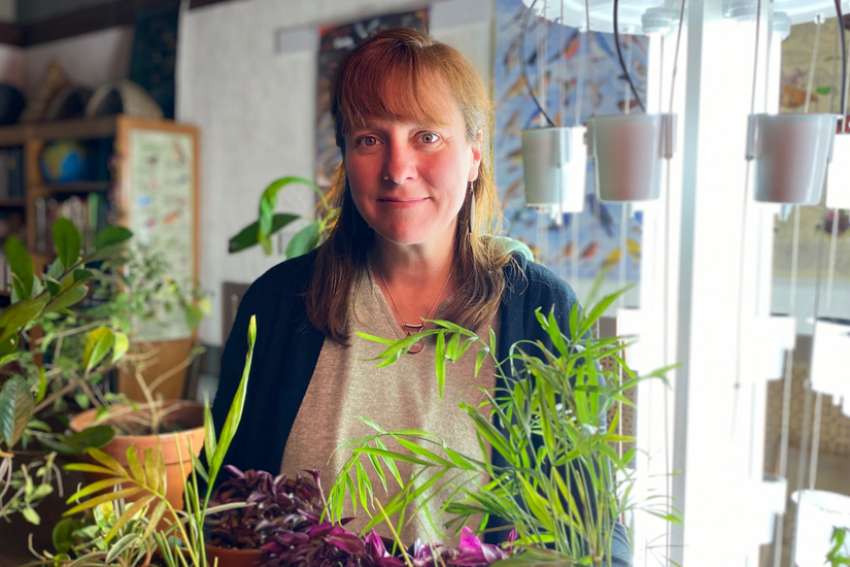Erica Follon was hired as the full-time director at the start of the year and has been busy getting herself up to speed as the network nears the end of its three-year action plan launched in 2017. She’s been “diving in the deep end” to learn the ropes as the network hopes to become a presence in all Canadian provinces and territories and expand on its Quebec-based, mostly Catholic roots.
“Hopefully our results, tangible or not, will be evident within the next year,” said Follon, an environmental scientist with a background in the non-profit sector, including past work with the United and Anglican Churches, as well as in schools.
The ambitious goal is running behind right now, with 80 members to date. The goal was to have 110 churches, dioceses, religious orders and other organizations on board by the end of 2018, and 200 by this year’s end. Rather than being discouraged however, Follon said the network is soldiering on to meet its goal. She has stepped right into the recruitment drive and was recently speaking with an Alberta organization about the prospect of joining.
The charitable network helps Christian communities in the care of God’s creation, offering tips for energy efficiency for religious buildings and environmental campaigns and prayers for the liturgy to make environmental stewardship a reality in Canadian churches.
The Green Churches Network has recognized it needs to step up its efforts and that’s one of the reasons Follon was brought on board. She takes over from Gregory Lynch, who held the position part-time, but it was realized a full-time person was needed for the position (Lynch remains on the board of directors).
The aim is to get churches — of all denominations — involved as environmental beacons in their communities. Despite a decline in numbers for most faiths, churches still abound across the country and many are transitioning into important community hubs in their neighbourhoods.
“(The goal) is to have churches and religious buildings becoming so environmentally advanced that they attract the attention of their surrounding communities, their neighbourhoods and serve as examples,” said Follon. “They see the advancement of ecological actions, steps that have been taken and that spreads forward into their own houses and communities.”
Follon is convinced the eventual success will come down to youth. Today’s youngest generations have all been raised with the idea of going green, but that is a challenge in an aging church.
“We have this general situation where churches are not as filled with youth as they could be or used to be,” she said. “The churches that have youth groups, those are hopeful places to begin taking these steps because the youth are very motivated.”
Pope Francis’ environmental encyclical Laudato Si’ has been an important tool for the network to use in spreading its message since its 2015 release, and Follon plans to continue using it. She said it has started a conversation and now is the time for action.
“It starts with talk and then action takes a little more effort.”
Another key tool at its disposal is the annual Season of Creation, celebrated Sept. 1 — the day Patriarch Demetrios I, patriarch of Constantinople, dedicated to the protection of the environment in 1989, and in 2015 was established as the World Day of Prayer for the Care of Creation by Pope Francis — through Oct. 4, the Feast of St. Francis of Assisi. Christian communities are invited to organize activities on the theme of creation care during those five weeks. It also hosts its annual Green Churches Forum to stimulate ecological initiatives.
The network is also working on a green Mass wine, to be grown in local vineyards, which it hopes to certify soon, among other efforts, said Follon.


